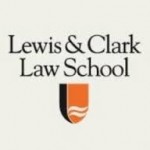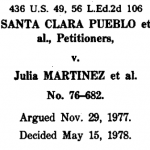By Anthony Broadman
The Second Circuit’s recent body-slam of tribal online lenders in Otoe-Missouria Tribe of Indians v. New York State Department of Financial Services unnecessarily confused an already bad situation. Faced with state regulation, Midwestern tribal payday lenders sued to halt New York’s interference with their operations. Setting aside the wisdom of bringing the suit in the first place, the case provided the opportunity for the Second Circuit to incorrectly employ an inapplicable legal test. If this decision on a preliminary injunction were ever imported into a substantive ruling, tribes operating in the Second Circuit would face an incredibly difficult standard when protecting on-Reservation economic development from state attack. 
Critically, Otoe dealt with attempted state regulation of Indian Tribes. The Tribes were attempting to halt that regulation through a preliminary injunction. There were real, legal questions about the “where” of regulation: whether lending occurred in New York or on Midwestern Indian reservations. But the “who” wasn’t in question. The Second Circuit partially accepted the plaintiff-tribes’ invitation to err, and entertained the possibility that the test announced in White Mountain Apache Tribe v. Bracker, 448 U.S. 136 (1980), could apply.
As problematic as the Bracker balancing test has become, we know a few things for sure. First, it doesn’t apply when the “who” is an Indian tribe, tribal member, or tribal business. Ever. There are plenty of examples when courts have gotten this wrong, but Wagnon v. Prairie Band Potawatomi Nation, 546 U.S. 95, 99 (2005) provided as much clarity as one can have. Second, if Bracker applies only to non-Indians, then it must only apply in Indian Country. We don’t need any authority for the proposition that non-Indians are subject to non-Indian regulation outside Indian Country. Finally, Bracker doesn’t apply to anyone outside of Indian Country. Absent a treaty or other federal law, tribes, their members, and their tribal business are subject to state regulation outside of Indian Country. See Mescalero Apache Tribe v. Jones, 411 U.S. 145, 148–49 (1973).
Not surprisingly, the state relied on each of these hornbook tenets of Indian law. But the Second Circuit appears to have partially indulged the tribes’ argument that “this case falls squarely under the analytical framework required under Bracker and Cabazon,” (Plaintiff-Tribes’ Brief at 19)—even though it does not. The tribes clearly conceded that the state was attempting to regulate “the Tribes’ on-reservation businesses[.]” Id. at 16. The fact that these businesses happened to work with non-Indians is irrelevant unless the state is targeting those non-Indians. The stronger argument (if one exists) here would have been that states were either illegally regulating on-Reservation non-Indian conduct (Bracker) or illegally regulating on-Reservation Indian conduct (Chickasaw).
There may be silver linings to this smackdown. First, the Second Circuit thankfully refused to firmly determine the “where” of online tribal lending because of a dearth of competent proof. The lower court had determined the loans occurred in New York. A bad decision here could have had far-reaching implications, particularly in the mobile and Internet tribal gaming context. Second, the arguments below regarding the “who” of New York’s regulation were so convoluted, that even a bad decision on substance could have been distinguished. Even the tribes were not clear whether New York was regulating lenders, borrowers, or business partners.
In the often-formalistic sphere of tribal regulatory disputes, tribes should expect federal courts to require cogent proof and clear arguments surrounding the “who” and “where” of state regulation. Here, the lack of either may have stayed the execution of tribal payday lending to borrowers in Connecticut, New York, and Vermont – for now.
Anthony Broadman is a partner at Galanda Broadman PLLC. He can be reached at 206.321.2672, anthony@galandabroadman.com, or via galandabroadman.com.















